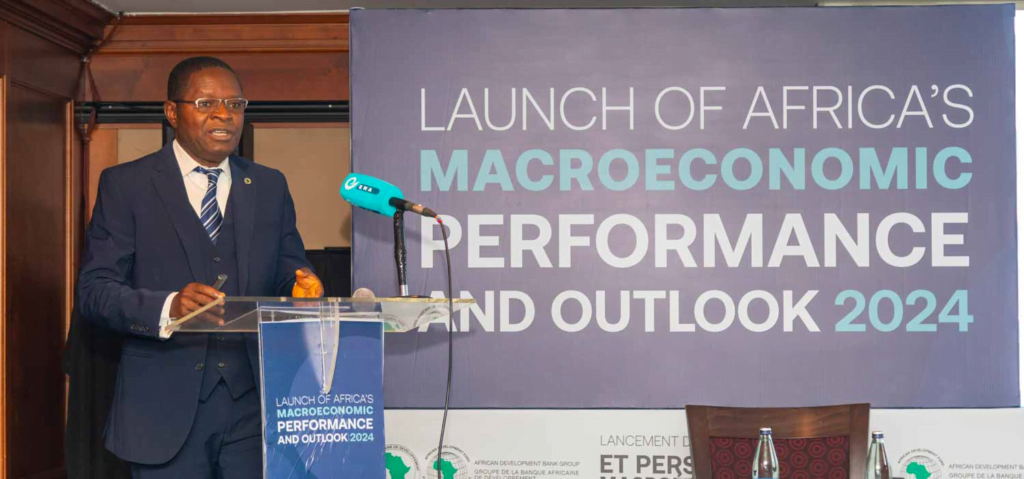Macroeconomic performance and prospects 2024 : Africa leads global economic growth rankings
In 2024, Africa asserts its position at the top of the global economic growth chart, with eleven out of the twenty countries showing the most dynamic growth, according to a recent report by the African Development Bank (AfDB). This optimistic forecast highlights expected growth surpassing the global average, confirming the continent as one of the most dynamic regions economically. However, this promising growth comes with challenges and risks to consider in maintaining this upward trajectory.

By the editorial staff
The AfDB report predicts an average real Gross Domestic Product (GDP) growth in Africa of 3.8% in 2024, exceeding the global average of 2.9%. This performance is expected to strengthen in 2025, with projected growth at 4.2%. These figures
reflect the continued resilience of African economies despite persistent challenges.
Among the eleven African countries leading in economic growth, Niger stands out with an impressive forecast of 11.2%. Other countries such as Senegal, Libya, Rwanda, and Ivory Coast also record significant growth rates, well above global averages.
Africa’s economic growth is expected to regain moderate strength as long as the global economy holds firm

Akinwumi Adesina, President of the AfDB, emphasizes the importance of robust financial policies and effective political interventions to support this growth. He calls for increased financing and structural reforms to consolidate economic gains and address potential challenges, such as geopolitical tensions and regional instability.
“Growth in Africa’s top-performing economies has benefitted from a range of factors, including declining commodity dependence through economic diversification, increasing strategic investment in key growth sectors, and rising both public and private consumption, as well as positive developments in key export markets, said the African Development Bank’s Chief Economist and Vice President, Prof. Kevin Urama. Africa’s economic growth is projected to regain moderate strength as long as the global economy remains resilient, disinflation continues, investment in infrastructure projects remains buoyant, and progress is sustained on debt restructuring and fiscal consolidation.” The report highlights the importance of economic integration for Africa’s future. Albert Muchanga, Commissioner of the African Union, underscores the importance of a strong domestic market to boost intra-African manufacturing production and enhance the continent’s global competitiveness.
East Africa will continue to drive the continent’s growth momentum

Economic prospects vary across regions of the continent. East Africa will continue to drive the continent’s growth momentum, with a projected GDP growth of 5.1% in 2024 and 5.7% in 2025, supported by sustained investments in connectivity and intra-regional trade.
For North Africa, unfavorable weather conditions and successive macroeconomic challenges will keep the region’s growth at 3.9% in 2024, with a slight improvement to 4.1% in 2025.
In Central Africa, growth is expected to slow to 3.5% in 2024, but the anticipated recovery in private consumption and increased mining investments and exports could contribute to growth reaching 4.1% in 2025.
Growth will remain low in Southern Africa, advancing by 2.2% in 2024 and 2.6% in 2025. This reflects the persistent economic weakness of South Africa, the largest economy in the region.
Growth is expected to accelerate in West Africa to reach 4% in 2024 and 4.4% in 2025. The strong growth recorded in most countries in the region is expected to offset slowdowns observed in Nigeria and Ghana. The announced withdrawal of Burkina Faso, Mali, and Niger from the Economic Community of West African States (ECOWAS) casts a shadow over the sustainability of gains in an increasingly uncertain context.
In 2024, up to 41 countries on the continent will achieve an economic growth rate of 3.8%, and in thirteen of them, growth will be more than one percentage point higher than in 2023.
« “Long-term development cannot be based on short-term loans. Loans to Africa should be at least 25 years or longer. Short-term borrowing is dangerous for long-term development. Africa must act as one, in scale,” explained Director of the Center for Sustainable Development, Columbia University Prof Jeffrey Sachs.
Sachs, who is also the UN Secretary-General António Guterres’ Advocate for Sustainable Development Goals also called for a much larger African Development Bank, better resourced to meet Africa’s financing needs.
Despite these challenges, Africa remains optimistic about its economic future. Structural reforms, strategic industrial policies, and investments in human capital are essential to stimulate sustainable and inclusive economic growth across the continent.






